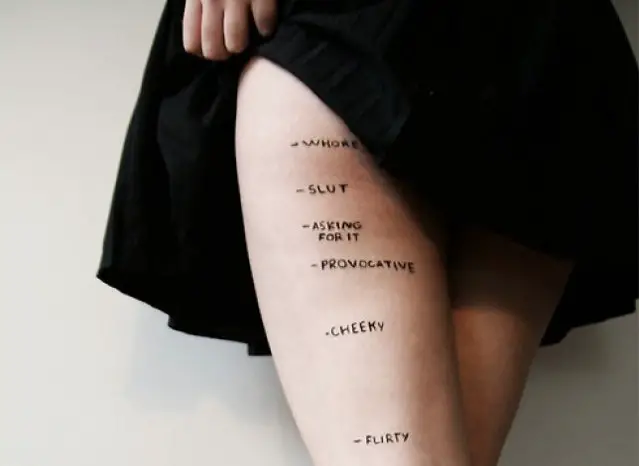Message of Hypocrisy in Miss Representation

However, though the documentary raised good points, it also had a tone of hypocrisy as well as not necessarily always presenting clear links between the argument made and the evidence shown. Miss Representation definitely had an undertone of "slut-shaming" throughout the documentary. Yes, it is bad that women are presented in an objectifying way. However, the documentary seemed to ignore that women often find power in their own bodies and showing their body is not always necessarily a bad thing nor does it say anything about the woman's character. The documentary was definitely showing women in media that willingly would show their bodies with an air of disgust, and then show clothed, powerful women in politics next to that to show a stark contrast and send an implicit message that intelligent, more modest women are somehow better. I do agree that objectification of women and showing an inaccurate version of a woman's body is bad. However, I do not think that a woman finding power in her own body, and being proud of her sexual prowess is not a bad thing as the documentary seemed to think.
The documentary also had some arguments that weren't backed by the best evidence, or showed a clear link. For example, the documentary showed violent video games and one character in one video game beating a woman (when this wasn't even the point of the video game), and then linked that to news articles about young girls and women being raped and assaulted. There was nothing in the news articles that said that the boys or men who did these acts were influenced by violent video games, nor was there any clear link shown between violent video games and sexual assault. In addition, the documentary's sources weren't always the most credible. The documentary placed Hilary Clinton on a pedestal, which may have had something to do with the fact that the documentary's creator's husband was a Democratic mayor of San Francisco. The documentary conveniently ignored that Hilary Clinton had lost fair and square, and instead only focused on her gender and the fact that she lost to a man. Exploiting one's gender to get ahead isn't something I think is necessarily good. Yes, women do not get nearly as half of the chances men get in life. However, succeeding by one's own talent and merit truly shows that women are equals to men.


I think it is very interesting that the documentary called Miss Representation is in fact misrepresenting the very thing that they were talking about. After reading this post and reflecting upon the documentary, there was a definite bias in the argument and things that were definitely overlooked in there. I had been previously blind to the holes in their argument, and I think it is quite irresponsible of the filmmakers to have left out an important counterargument.
ReplyDelete